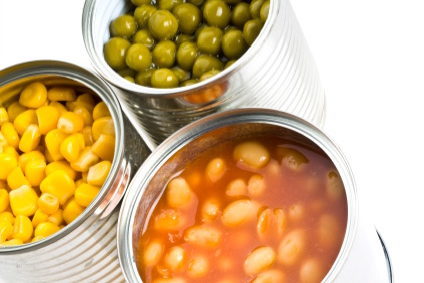Health advocates urge for continued work toward eliminating toxic bisphenols, such as BPS or BPA, from receipts through safer solutions
Ann Arbor, MI – Today, the Ecology Center’s Healthy Stuff Lab released a new report showing almost 80% of paper receipts from large retailers in the United States contain bisphenol S (BPS) – a toxic variation of bisphenol A (BPA), which was found in very few receipts. Although BPS is marketed as a safer replacement for BPA, both are endocrine-disrupting chemicals linked to health issues including cancer.
The Ecology Center, Green America, Toxic-Free Future, and customers have been advocating for years for retailers to eliminate bisphenol-coated paper receipts by going paperless or using non-toxic paper instead.
For their study, Receipt Deceit: Toxic Chemicals in Receipt Paper, released today, the Ecology Center tested 374 paper receipts from 144 major retailer chains in 22 U.S. states and the District of Columbia. The samples included major grocers as well as restaurants, big box and department stores, drugstores, gas stations, home improvement, and convenience stores.
The researchers found BPS in nearly 80% of receipts tested, down from 84% of receipts tested in 2017. BPA was found in less than 1% of receipts tested, down from 9% in 2017. The group found safer chemical alternatives in 20% of receipts tested, up from 2% of receipts tested in 2017. In the report, the researchers note the positive progress toward removing dangerous receipts while emphasizing that this unnecessary toxic hazard is still common and poses a particular hazard to workers who handle receipts. Health advocates encourage minimizing the printing of receipts and a move toward digital options as a safer solution.
“Receipts are a common exposure route for hormone-disrupting bisphenols which readily absorb through the skin. Our studies show most retailers use bisphenol-coated receipt paper,” said Melissa Cooper Sargent, environmental health advocate at the Ecology Center of Michigan. “Switching to non-toxic paper is an easy shift. We urge retailers to stop handing out chemical-laced paper to their consumers and putting employees at risk.”
“Fast food and fast casual restaurant workers often handle hundreds of receipts during each shift, which means that potential exposure to endocrine disrupting BPS or BPA is constant,” said Autumn Weintraub, Fast Food Campaign Director, Service Employees International Union Local 32BJ. “Working conditions mean that employees may have moist or greasy fingers or may frequently use hand sanitizer, all of which could greatly increase their exposure. Retailers have a responsibility to keep their workers safe while on the job. That includes keeping workers safe from harmful chemicals.”
“Retailers can protect their customers, their communities, and their employees. Removing bisphenols from receipt paper is step one, and we encourage retailers to take the next step of not printing receipts altogether unless a customer asks for one and offer a digital receipt option to all customers,” said Dan Howells, climate campaigns director at Green America.
“No one should have to worry about toxic exposures from checking out at a store,” said Mike Schade, director of Mind the Store, a program of Toxic-Free Future. “For more than a decade, our studies have shown that bisphenols in receipt paper are a problem. This new study is proof that when we work toward safer alternatives, we can bend the curve down on these toxics in receipts. We encourage retailers to step up to protect their customers from this unnecessary exposure.”
“BPA and BPS are known to disrupt our hormones and have been linked to numerous health harms, including cancer, birth defects, and other developmental issues,” said Nancy Buermeyer, director of program and policy, Breast Cancer Prevention Partners. “Now it’s time to remove these dangerous and unnecessary chemicals from thermal receipt paper. This exposure concerns all consumers; however, the risk is highest for cashiers, over 70% of whom are women. We look forward to California’s Assembly Bill 1347, “Skip the Slip,” which calls for digital receipts and BPS/BPA-free receipts, becoming law.”
Major retailers, including Best Buy, Costco, REI, Target, TJX Companies (including T.J. Maxx, Marshalls, and HomeGoods), and Whole Foods Market, have taken action to eliminate bisphenols in receipts in recent years, according to the Retailer Report Card. Last week, Walgreens announced they will transition to phenol-free receipts at nearly 9,000 Walgreens and Duane Reade stores in the U.S. by the end of 2023, a move that follows its UK Boots stores. In 2020, CVS, the largest U.S. pharmacy chain, made a policy shift in response to pressure from Green America and thousands of its customers, when it increased promotion of digital and no-receipt options and stopped using phenol-coated receipt paper. CVS is a leader on Green America’s Skip the Slip scorecard.
States are also acting to minimize toxic chemicals that impact consumers. Washington has become the first state in the country to propose a statewide ban on bisphenols in receipts under the state’s Safer Products for Washington program, which is expected to go into effect January 1, 2025. In California, Skip the Slip legislation was recently introduced that would require retailers to offer digital receipts and provide phenol-free paper receipts to customers that request them.
ABOUT THE ECOLOGY CENTER
The Ecology Center’s Healthy Stuff Lab researches toxic chemicals found in our everyday environments. Our team of scientists conducts research and tests consumer products, air, soil, water, fish, food, and more for toxic chemicals. Founded in 1970, the Ecology Center is a Michigan-based nonprofit environmental health organization working at the local, state, and national levels for clean production, healthy communities, environmental justice, and a sustainable future. The Ecology Center tested over 200 paper receipts for bisphenols in 2018. www.ecocenter.org
ABOUT GREEN AMERICA
Green America is the nation’s leading green economy organization. Founded in 1982, Green America provides the economic strategies, organizing power and practical tools for businesses, investors, and consumers to solve today’s social and environmental problems. http://www.GreenAmerica.org
ABOUT TOXIC-FREE FUTURE
Toxic-Free Future is a national leader in environmental health research and advocacy. Through the power of science, education, and activism, Toxic-Free Future drives strong laws and corporate responsibility that protects the health of all people and the planet. www.toxicfreefuture.org
###
MEDIA CONTACTS
Thea Hassan, Ecology Center, (607) 425-8066, [email protected]
Max Karlin, Green America, (703) 276-3255, or [email protected]
Stephanie Stohler, Toxic-Free Future, [email protected]


 What are bisphenols?
What are bisphenols? Study: "Receipt Deceit: Toxic Chemicals in Receipt Paper"
Study: "Receipt Deceit: Toxic Chemicals in Receipt Paper"